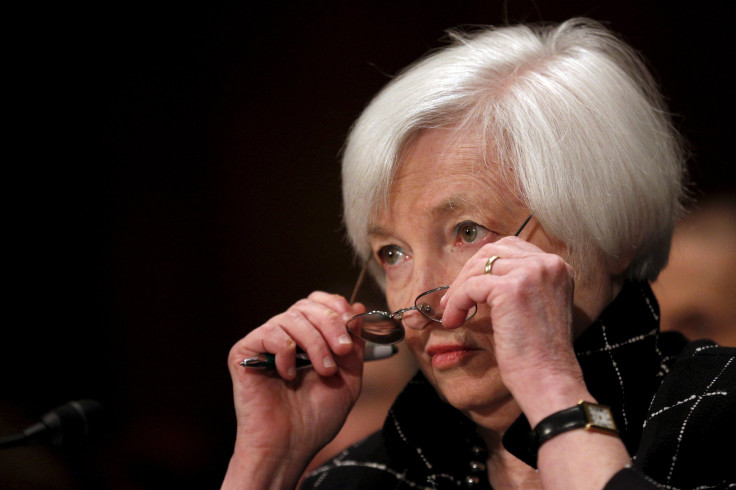Federal Reserve Minutes Show Increasing Uncertainty Around Stability Of Global Economy

Members of the Federal Reserve's rate-setting committee voiced rising uncertainty around economic growth in late January, as a worldwide stock market rout threw a wrench in the Fed's expectations of smooth sailing in 2016.
Fed officials raised concerns over "the potential drag on the U.S. economy from the broader effects of a greater-than-expected slowdown in China," among other worrying economic and financial trends, according to minutes from the Jan. 26-27 Federal Open Markets Committee meeting released Wednesday.
"The downside risks to the forecast of economic activity were seen as more pronounced than in December, mainly reflecting the greater uncertainty about global economic prospects and the financial market turbulence in the United States and abroad," the minutes read, reflecting the wait-and-see approach that Fed Chair Janet Yellen advocated in her testimony to Congress last week.
When Fed officials opted in December to raise interest rates for the first time since 2006, they expected the economy to continue slowly improving, warranting a "gradual" pace of further rate increases. At the time, the median estimate from Fed officials was for four rate hikes in 2016.
But by January Fed officials had watched as market turmoil stemming from economic disappointments in emerging markets sent equity markets tumbling from Japan to Europe to the United States. In January, the Federal Open Markets Committee, which meets eight times a year to set monetary policy, opted to hold rates at the relatively low levels set in December.
In light of the shuddering global markets, as well as lackluster U.S. data, analysts at Bank of America Merrill Lynch said Wednesday the Fed had tempered its expectations of four rate hikes in 2016. “‘Gradual’ now means two rather than three or four hikes this year," the analysts wrote in their note to clients Wednesday.
But market gyrations still may not be enough to push the Fed to reverse course. "While it has been a very rocky start to the new year, the Fed is a long way from capitulation," the Bank of America analysts wrote, arguing that the Fed's most likely course of action is to simply delay further rate hikes rather than pivot back to monetary easing.
The headwinds from abroad were balanced by positive jobs numbers and housing demand, Fed officials noted, though consumer spending and manufacturing data remained "disappointing." Regarding the timing of future interest rate moves, the minutes noted that, as always, "adjustments will depend on future economic and financial-market developments."
But given the dampened pace of inflation, held down by a strong dollar and weak oil prices, some on the committee pushed for an even more dovish approach to raising rates.
"A couple of members emphasized that direct evidence that inflation was rising toward 2 percent would be an important element of their assessments of the appropriate timing of further policy firming," the minutes read, referring to the Fed's target of 2 percent core inflation — a mark the economy has missed for more than 40 months running.
The notes also touched on a matter that perturbed members of Congress during Yellen's testimony last week: negative interest rates. Participants questioned "whether the band around the federal funds rate path should extend below zero," the minutes said.
Investors have grown increasingly curious whether the Fed would follow the lead of central banks in Europe and Asia and push interest rates negative in the event of a sharp economic downturn. Along these lines, members of the House and Senate grilled Yellen over whether the Fed has the ammunition to respond to a recession, given the near-zero level of current benchmark interest rates.
Yellen has consistently noted that monetary policy is "by no means on a preset course," refusing to place odds on whether a recession is imminent. Although that lack of certainty has grated against investors, Fed policymakers seemed eager to reiterate that they are following the data, not market expectations. "A couple of participants questioned whether some financial market participants fully appreciated that monetary policy is data-dependent," the minutes read.
© Copyright IBTimes 2024. All rights reserved.












